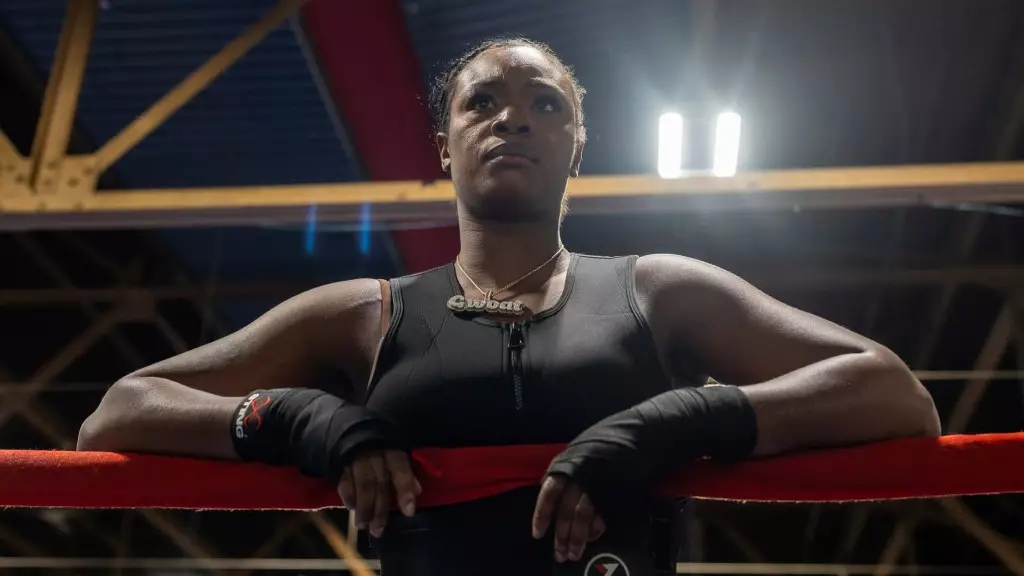Claressa Shields, a celebrated American boxer and a unique figure in the sports world, has recently found herself in the eye of a significant controversy. Known for her unparalleled achievements, including being the undisputed champion in three weight classes and a two-time Olympic gold medalist, her reputation faces scrutiny after a positive marijuana test following her match against Danielle Perkins in Michigan. This development not only raises questions about Shields personally but also about the broader implications for integrity and regulation in professional sports.
Following her victory on February 2, Shields was suspended by the Michigan Unarmed Combat Commission. The organization acted swiftly after an oral fluid sample confirmed the presence of marijuana, violating standards set by the World Anti-Doping Agency (WADA), which prohibits its use in competitive scenarios. The Commission’s statement highlighted that this breach poses an “immediate threat” to the integrity of boxing, emphasizing the sport’s commitment to maintaining a level playing field. Such measures, while perhaps seen as stringent, illustrate a necessary response to uphold the principles of fair competition.
The fallout from Shields’ suspension is significant not only for her career but also for the boxing community as a whole. The World Boxing Organization (WBO) has requested a “show cause” notice from Shields, seeking clarification regarding her actions. This pressure from major boxing institutions indicates a collective concern regarding compliance with anti-doping policies. Furthermore, the Michigan Commission’s ongoing investigation is critical in determining whether further disciplinary actions could ensue, which could potentially influence Shields’ future in the ring.
The stark reality of this situation serves as a reminder of the complexities surrounding drug testing in sports. It raises essential questions regarding the classification of substances, as marijuana remains a contentious issue within various athletic communities. While some regions have relaxed their stances on marijuana use, WADA continues to classify it as a banned substance during competition. This inconsistency creates challenges for athletes who navigate diverse legal landscapes and cultural perceptions surrounding cannabis use.
In the wake of the controversy, Shields has utilized social media to express her views, notably stating, “Clean athletes win.” This assertion highlights her position regarding athletic integrity, an important value she holds as a champion. However, this message could be perceived as contradictory in light of her recent positive test. The connection between her public persona and her current predicament invites a broader discussion about the expectations of athletes and the weight of their words in the face of scrutiny.
As the situation surrounding Claressa Shields continues to unfold, it serves as a crucial juncture for both her career and the boxing industry at large. The implications of anti-doping regulations and the ethical responsibilities of athletes are at the forefront of the discourse. Moving forward, it will be essential for all stakeholders in the sport, from governing bodies to athletes, to engage in constructive dialogues about integrity, fairness, and the evolving landscape of competitive athletics. Shields’ case may eventually catalyze change, prompting a reassessment of existing norms and policies within the sports community.

